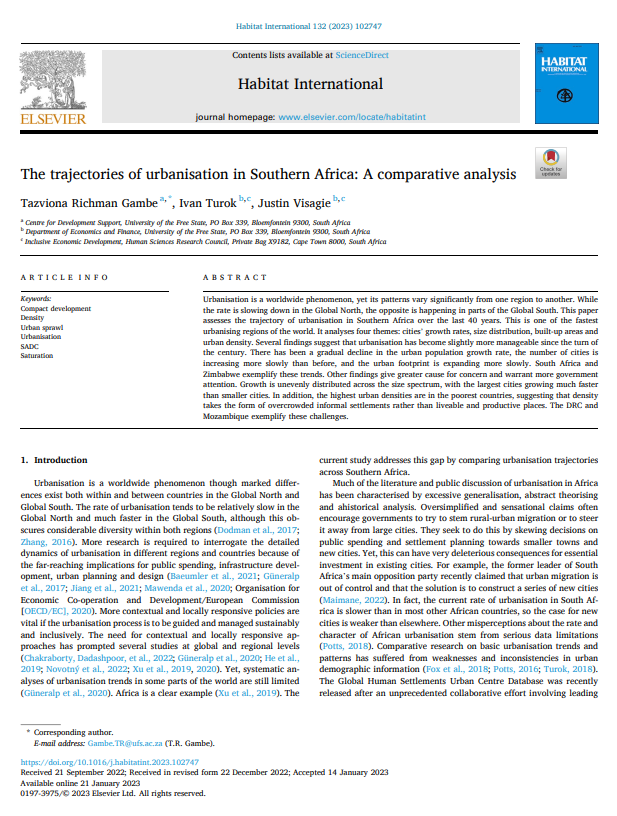The trajectories of urbanisation in Southern Africa
A comparative analysis

Urbanisation is a worldwide phenomenon, yet its patterns vary significantly from one region to another. While the rate is slowing down in the Global North, the opposite is happening in parts of the Global South. This paper assesses the trajectory of urbanisation in Southern Africa over the last 40 years. This is one of the fastest urbanising regions of the world. It analyses four themes: cities’ growth rates, size distribution, built-up areas and urban density. Several findings suggest that urbanisation has become slightly more manageable since the turn of the century. This paper uses a novel dataset to analyse the nature and scale of urbanisation in Southern Africa.
There has been a gradual decline in the urban population growth rate, the number of cities is increasing more slowly than before, and the urban footprint is expanding more slowly. South Africa and Zimbabwe exemplify these trends. Other findings give greater cause for concern and warrant more government attention. Growth is unevenly distributed across the size spectrum, with the largest cities growing much faster than smaller cities. In addition, the highest urban densities are in the poorest countries, suggesting that density takes the form of overcrowded informal settlements rather than liveable and productive places.
Abstract based directly on source.


Comments